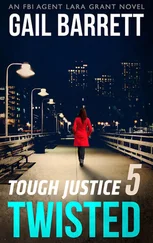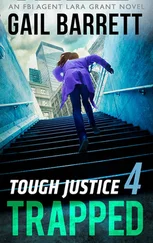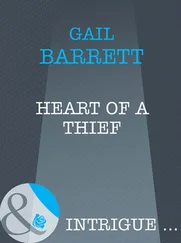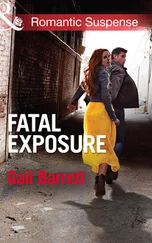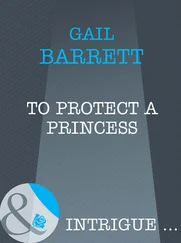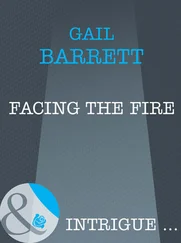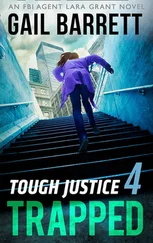Henry’s eyes softened. “I’m not going to argue with that, but your impression might be a little off.”
“I know.” As a plastic surgeon in New York City, she specialized in reconstructive work. And while she saw her share of accident victims and cancer survivors, she’d also seen far too many faces destroyed by fists—just as she had growing up.
Setting that depressing memory aside, she summoned a smile. “I’m just tired, I guess.” They’d spent weeks on the trail, sleeping in tents, hiking into villages so high she could hardly breathe. Sometimes they saved a life. That hope kept them going, making them feel they were doing some good, even if their efforts never seemed like enough. But sometimes the suffering overwhelmed her, despite her attempts to stay upbeat.
“I’m sorry I couldn’t help,” Henry said.
She cast the elderly doctor another glance, unable to miss the wistfulness in his voice. “Don’t be silly.” Henry was suffering from a moderate case of altitude sickness, or soroche as the locals called it, which had kept him confined to the camp. Except for Manny, their native interpreter, they’d all suffered headaches and fatigue as they’d crossed the slopes. But Henry’s case had been the worst, dangerously so.
“How’s your head?” she asked.
“Better.”
“Have you been chewing the coca leaves?”
“Yes, Doctor Seymour.” He slid her a cheeky smile.
She didn’t smile back. They still had several more hamlets—at an even higher elevation—to reach before they headed down to a safer altitude. “You sure you want to continue?”
“Of course.”
“What’s your reading on the pulse oximeter?”
“Nearly eighty.”
“Eighty? It should be back in the nineties by now. The high nineties.” Cerebral edema, swelling of the brain caused by a lack of oxygen, wasn’t a joke. Hikers died from it every year—which Henry knew. “Tell me your name and birth date.”
Henry sighed. “I’m not confused, no more than I usually am. My pulse is normal. My gait’s steady. My appetite is coming back. Don’t worry. I’ll tell you if it gets any worse.”
Assuming he was lucid enough to notice. “You’d better.” Not only was the trail about to get steeper, but they were entering an area notorious for drug smugglers. Hopefully, their organization’s scouts were right, and the drug cartel had moved out due to the rainy season about to begin. But the team still had to move quickly and keep their wits about them if they hoped to survive unscathed.
“I’m monitoring it,” Henry assured her. “And I am getting better. I just need another day to rest. I’ll be jogging up the trail in no time.”
She studied his face. He was still too pale and drawn, but maybe he’d improved a bit. Still, she’d been on these trips with him before. She knew how stubborn he could be. How generous. He would never want to slow them down and deny a villager their services—even if it killed him to soldier on.
A rumble of thunder caught her attention, and she looked up. Still worried, she studied the storm clouds crawling over the peaks, their slab-gray bottoms laden with rain. Lovely. By the time they set out in the morning, they’d be trudging through mud. She just hoped their tents didn’t wash away before then. “I’d better help Lauren secure the supplies.”
Henry started to rise with her, but she held up her hand. “Stop right there. You’re going to sit here and have another cup of coca tea. And chew a few leaves while you’re at it. Doctor’s orders.” She smiled at Henry’s salute.
Hurrying now, she started toward the tarp where the pharmacist had spread out their medical supplies, reorganizing them for the following day. But halfway across the clearing, that odd feeling returned, the same creepy sensation that had plagued her earlier, as if someone had her in his sights. She came to a stop and glanced around, scanning the steep hills surrounding the camp, the long, yellow grass waving in the wind, the lone hawk riding the thermals in the gloomy sky.
Her heart still beating fast, she shifted her gaze to the camp itself—the tents grouped to one side, their native interpreter, Manny, tending the mules nearby. The pharmacist rushed to bundle up their medications while the two nurses carted the finished packs to the supply tent to keep them dry.
Nothing was wrong. No one was watching her. She was imagining that ripple of danger, the shock of remembered fear.
With effort, she shook the feeling aside. She was being ridiculous. No one could have found her here. How much more isolated could she get? She was tired, that was all. She just needed a hot meal, a warm sleeping bag and a good night’s rest to feel like herself again.
The wind whipped down, splattering icy raindrops over her cheeks. So much for comfort. Still, she could bear it. She’d faced far worse conditions than a freezing rainstorm during the years she’d lived on the streets.
But as she continued toward the pharmacist, the doubts came back full force. No matter where she was, no matter how much time had passed, she could never be completely safe. And she couldn’t afford to forget that—because if her enemies ever caught up with her, she’d be dead.
* * *
The uneasy feeling was back.
Nadine lay motionless in her sleeping bag several hours later, her breathing shallow, her gaze glued on the walls of her pitch-black tent. The rain bludgeoned the roof. The wind gusted and moaned, buffeting the nylon sides and tearing at the meager stakes. Above the storm, a mule made a plaintive haw while thunder crashed and shook the ground.
Something had woken her up. But there was no way she could have heard anything above the raging storm. And yet, the feeling of danger consumed her, the sensation that something bad was about to occur.
Knowing better than to ignore her instincts, she sat up. The pharmacist, Lauren, lay sleeping beside her. Anne, one of the nurses on the trip, snored on her other side. Nadine visualized the small camp’s layout—the men’s red tent, the smaller supply tent where Manny slept, enjoying his privacy. He was the only one who traveled armed.
The mule brayed again, followed by something that sounded like a horse’s neigh. Struck again by the feeling of wrongness, she held her breath, struggling to distinguish sounds in the seething storm. Surely she’d imagined the horse. No one would venture out on a night like this.
Not quite convinced, she dressed quickly in her sweater and jeans. She tugged on her boots and laced them, then took hold of the flashlight and lowered herself back onto the sleeping bag. Of course, she was overreacting. Sure, they were traveling through an area prone to drug smugglers, men who carried on a lucrative side business kidnapping foreigners for cash. But they were south of the coca fields. MHI, the agency that organized the trip, had monitored the situation carefully and hadn’t spotted any drug cartel activity in months.
And there was no way her family could have caught up with her out here. She’d fled her home—and the marriage her Jaziirastani father had arranged—over fifteen years ago. And while they’d promised retaliation, vowing to kill her to avenge their slighted honor, they couldn’t possibly have found her, not after all this time. She’d changed her name. She’d created a fictitious identity, complete with documentation, including a passport so authentic she routinely sailed through United States immigration points without a hitch. Even the most dogged investigator couldn’t connect her to Nadira al Kahtani, the terrified girl she’d once been.
A man shouted near the tent. Startled, she sat bolt upright again. Manny. He’d probably heard the mules and gone outside to calm them down. Maybe he needed her help. If those mules got loose, they’d have to chase them all over the mountains to find them, wasting valuable time.
Читать дальше



